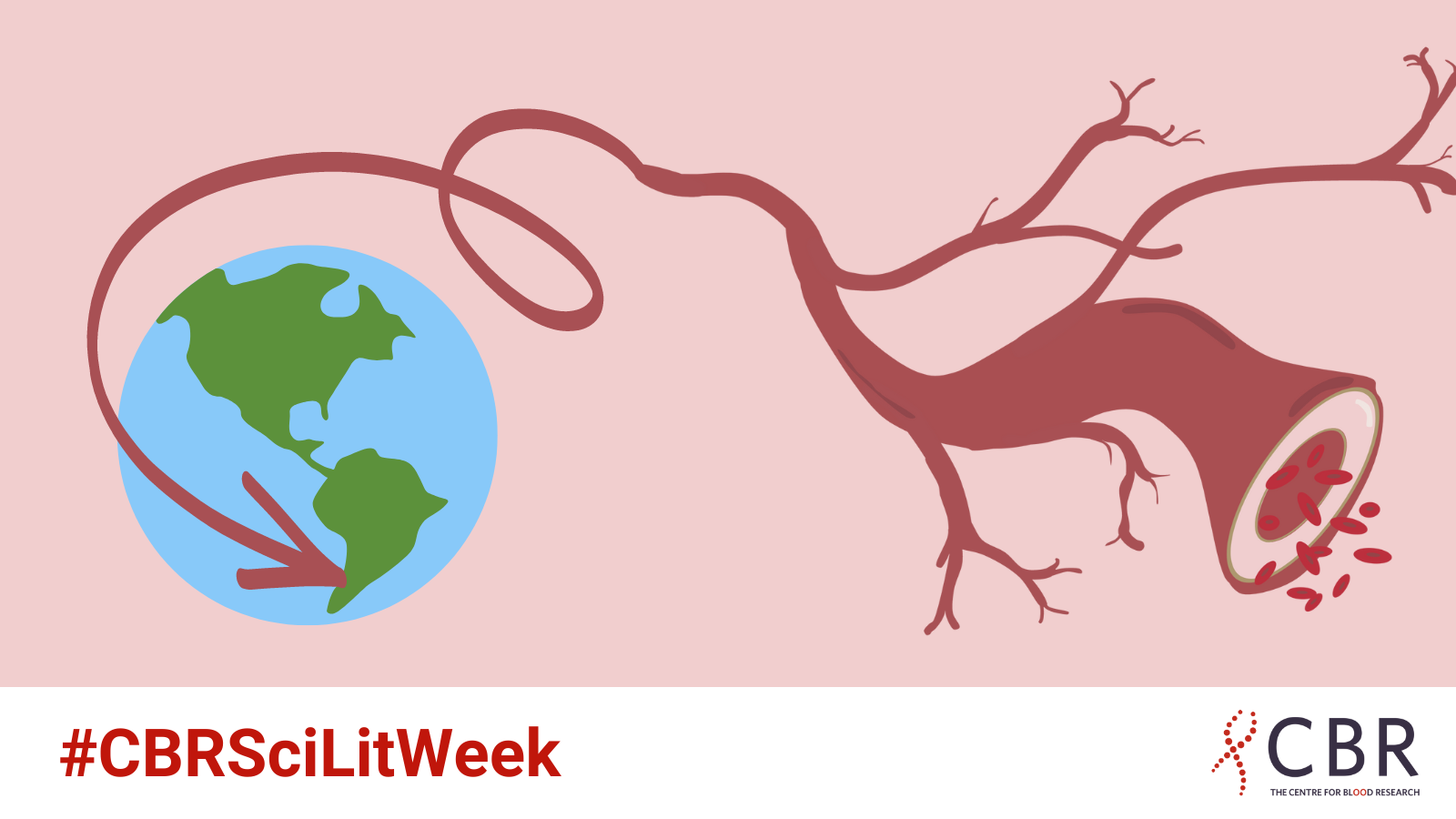For Science Literacy Week 2022, some members of our CBR Knowledge Translation Committee have joined forces to co-create a social media campaign, sharing blood facts and celebrating science with #CBRSciLitWeek. More posts will be shared throughout the week!

 By: Sarah Bowers, PhD Student, Brown Lab
By: Sarah Bowers, PhD Student, Brown Lab
The heart pumps blood throughout our body, ensuring that organs and tissues get the oxygen and nutrients they need, and that waste is carried away. But, aside from the heart, what are the other components of the circulatory system? How does blood get to where it needs to go?
A vast network of blood vessels provides the channels through which blood travels in our bodies. Blood vessels are narrow, with the smallest ones measuring less than the width of a human hair. However, if you lined up all the blood vessels in the human body end to end, they would stretch over 96,000 km. This is enough to go around the world more than twice!
3 major types of blood vessels work together to carry blood – 1. arteries, 2. capillaries, and 3. veins.
- Arteries carry blood away from the heart. The walls of arteries contain three layers, including a smooth inner layer, a strong muscular middle layer that helps pump blood, and a tough outer layer.
- Capillaries are narrow, thin-walled vessels which connect arteries to veins and allow for the exchange of materials (e.g. gases like oxygen and carbon dioxide) between blood and tissue cells.
- Veins then carry blood back to the heart. Like arteries, the walls of veins are also made of three layers, but they are less muscular and tough. Some veins contain valves to stop blood from flowing backward.
Normally, blood flows continuously through blood vessels. Various health conditions can affect blood vessels and can block or reduce blood flow to vital organs, which can result in disability or even death. Examples include:
- Atherosclerosis: Thickening or hardening of arteries caused by a buildup of plaque (e.g. fatty substances and cholesterol) in the lining of arteries
- Thrombosis: Blockage of blood vessels by blood clots
- Vasculitis: Inflammation of blood vessels, which can cause blood vessel walls to thicken, and the width of the passageway through the vessel to narrow
Healthy blood vessels play a critical role in allowing blood to travel through the body. We’re pleased to have shared some blood vessel facts with you for #SciLitWeek!
What is Science Literacy Week?
Science Literacy Week showcases the many ways kids and families can explore and enjoy the diversity of Canadian science. Libraries, museums, science centres, schools and not-for-profits come together to highlight the books, movies, podcasts and events that share exciting stories of the science, discoveries and ingenuity shaping our lives. It’s about each and everyone’s unique relationship with science and how they live it.
- Read the #CBRSciLitWeek posts. More posts will be shared throughout the week!
- Learn more about Science Literacy Week.


